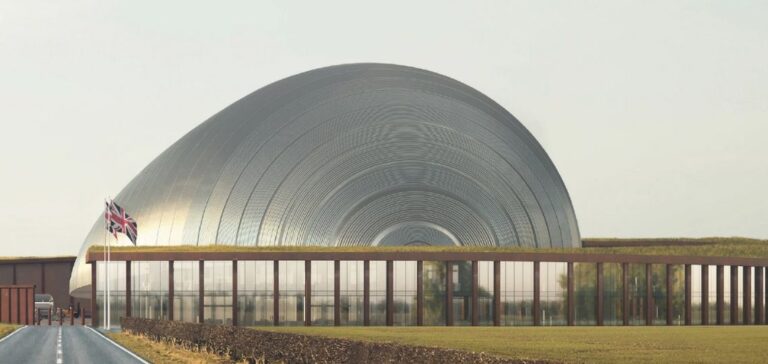The Finnish energy company Fortum announced on Tuesday discussions with the British group Rolls-Royce to build small Modular Reactor (SMR) in Sweden and Finland. This announcement comes after the return of the right-wing to power in Sweden last fall, with the desire to build at least two new reactors in the Nordic country, which operates six.
Fortum and Rolls-Royce’s SMR subsidiary will jointly explore the possibilities of deploying small modular reactors (SMR) in Finland and Sweden. Rolls-Royce is looking to build its first 470-megawatt, 60-year SMR, supposedly faster to build than a larger nuclear reactor.
A similar agreement to that of Rolls-Royce was announced by Fortum with EDF last December, with discussions for both EPRs and SMRs. The Swedish state-owned group Vattenfall is also considering the construction of SMRs in Sweden.
SMRs or Advanced Modular Reactors (AMRs) have about 70 to 80 projects worldwide. These modular reactors, which are intended to be the future of civil nuclear power, are smaller than conventional reactors and are built in a factory, which means they can be deployed more quickly and at lower cost. The world’s first SMR, in the form of a floating power plant ship, had been commissioned in the Russian Far East in 2019.
The construction of new nuclear reactors is at the heart of current environmental issues, because nuclear power is a source of energy that does not emit greenhouse gases and is therefore less polluting than fossil fuels. However, nuclear power also raises concerns about the safety of facilities and the management of radioactive waste.
In Finland, an EPR reactor built by the French group Areva is preparing to enter into normal operation in the coming weeks after a long construction period of almost 18 years. But a nuclear reactor project built by Russia’s Rosatom has just been abandoned following the invasion of Ukraine, leaving the question of another new reactor in limbo.
In conclusion, the discussions between Fortum and Rolls-Royce for the construction of small SMRs in Sweden and Finland illustrate the growing interest in this technology in the field of nuclear energy. While large reactors have often faced delays and high costs, SMRs offer an alternative that is faster to build and more flexible in terms of capacity. With approximately 70 to 80 SMR projects worldwide, it is clear that this technology is becoming a reality for the nuclear industry.





















